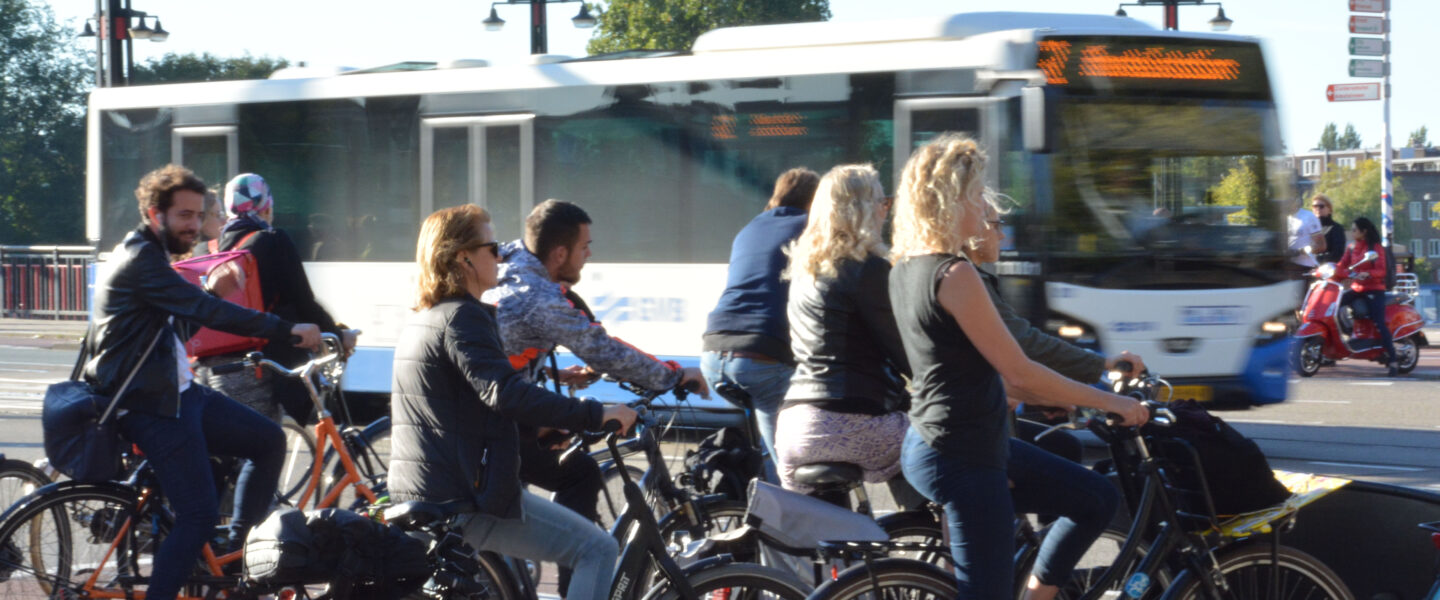More than 65 organizations have signed on to a 6-point open letter calling on Premier David Eby and the BC NDP government to immediately reallocate infrastructure funds away from highway expansion toward public transit and active transportation.
Signatories include the Union of BC Indian Chiefs, Better Environmentally Sound Transportation (BEST), HUB Cycling, Sierra Club BC, Stand.earth, Wilderness Committee, David Suzuki Foundation, University of Victoria Students’ Society, and the Amalgamated Transit Union.
“An author of this week’s IPCC synthesis report said ‘misaligned finance is holding back progress.’ And BC’s transportation budget needs a major realignment to fit with our provincial climate targets,” says Eric Doherty, a transportation planning consultant and member of Climate Justice Victoria. “It makes no sense to spend hundreds of millions of dollars on urban highway expansion while doing consultation on a plan to reduce traffic 25% by 2030. We can’t afford years of talk and pave.”
The letter urges the BC government to demonstrate its commitment to emergency-level climate action, human health and wellbeing, and equity and affordability.
“The Clean Transportation Action Plan cannot be just about the ridership in big urban centres, but must deliver reliable and accessible public transit to and from First Nations and small towns,” said Chief Marilyn Slett, Secretary-Treasurer of the Union of BC Indian Chiefs. “Providing safe and affordable transportation services is essential not only to reduce transportation emissions, but also to act on the Calls to Justice of the National Inquiry into Missing and Murdered Indigenous Women and Girls.”
The first recommendation in the letter is to “Make affordable, accessible, and convenient electric public transit within and between all communities a top priority.”
The open letter also calls for prioritizing funding for projects that reallocate road space from cars to transit lanes, protected bike and roll lanes, and pedestrian priority spaces.
“Investing in active and public transportation infrastructure is key, not only to face the current climate emergency, but to create enjoyable communities and achieve mobility justice for all,” said Pablo Zacarias, Executive Director of Better Environmentally Sound Transportation (BEST). “People are ready for change. We have a growing population of seniors who no longer drive, families that are choosing to bike to school, and the younger generations that are just not interested in owning a car.”
The definitive IPCC Sixth Assessment Report on climate mitigation states that “transformative changes in the transport sector. . . are needed to meet climate targets”.
“It isn’t enough to just switch from fossil fuel cars and trucks to electric vehicles; BC’s Clean Transportation Action Plan must be transformative,” said Shelley Luce, Sierra Club BC’s Director of Campaigns. “It will take a lot of electric buses, bus lanes and protected bike and roll lanes to reduce traffic by 25 percent in only seven years.”
“Rapidly electrifying the transportation sector, including trucks and buses, is essential as we build safer, cleaner, more sustainable communities,” said Logan McIntosh, SAFE Cities campaign director at Stand.earth.” And that’s exactly what we hope to see as part of BC’s Clean Transportation Action Plan.”
Additional groups can sign on to the open letter at bcclimateemergency.ca/sign-on until March 31. The BC government is accepting input on the proposed Clean Transportation Action Plan from groups and individuals until April 5.
The full letter with a list of endorsing groups can be accessed here.
Contact Information:
Eric Doherty, Transportation planning consultant and member of Climate Justice Victoria
eric [at] ecoplanning.ca
Shelley Luce, Director of Campaigns – Sierra Club of BC
Shelley [at] sierraclub.bc.ca

